
Latest Coronavirus Disease COVID 19 News and Research
Advances in Virus Epigenetics
Growing evidence shows viruses exploit epigenetic processes to control their life cycles but epigentic regulation of viral infections is not fully understood.
Inhaled steroids reduce SARS-CoV-2-related genes in COPD
A new study published on the preprint server medRxiv* aims to explore the effects of treatment with ICS on the expression of specific genes related to SARS-CoV-2 infection in bronchial epithelial cells in a prospective interventional design.
Italy starts human trials of potential COVID-19 vaccine
Rome's Lazzaro Spallanzani Institute, a hospital specializing in infectious diseases will conduct trials on 90 volunteers in the coming weeks, joining a global effort to develop an immune response to the virus.
Google searches for anxiety skyrocket amid coronavirus pandemic
Just like physical health, it is important to check one’s mental health amid the ongoing coronavirus pandemic. When countries announced lockdown orders, many people were confined to their homes, away from family and friends.
Higher COVID-19 risk perception among older American adults
In a new study published on the preprint server medRxiv*, researchers from the Yale Institute for Global Health analyzed the shift in COVID-19 risk perception, behavior, knowledge, and attitude across the U.S. from February to May 2020 by surveying 672 adults.
Blood cancer patients are more vulnerable to the effects of COVID-19, study finds
A newly published study led by the Universities of Oxford and Birmingham has found that, compared to other cancers, patients with blood cancers are more vulnerable to the effects of the coronavirus pandemic.
COVID specific IgA monoclonal antibodies may provide effective immunity against coronavirus
A new study by researchers at MassBiologics of UMass Medical School published in Nature Communications suggests that COVID specific IgA monoclonal antibodies may provide effective immunity in the respiratory system against the novel coronavirus - a potentially critical feature of an effective vaccine.
Study explains the linear growth of COVID-19 infection curve
With the first COVID-19 epidemic peak behind them, many countries explained the decrease of infection numbers through non-pharmaceutical interventions. Phrases like "social distancing" and "flatten the curve" have become part of common vocabulary.
World's first confirmed case of SARS-CoV-2 re-infection
A team of researchers at the University of Hong Kong said that they have proven that a 33-year-old man was infected by the SARS-CoV-2 virus for a second time. The man was discharged from a hospital in April but contracted the infection again after returning from Spain via the United Kingdom in August.
Relative humidity could play a role in transmission of SARS-CoV-2 indoors
A new study has explored the role of relative humidity in the transmission of the severe acute respiratory syndrome coronavirus 2 (SARS-CoV-2) from person to person indoors. The study titled, “An Overview on the Role of Relative Humidity in Airborne Transmission of SARS-CoV-2 in Indoor Environments,” is published in the latest issue of the journal Aerosol and Air Quality Research.
Single dose nasal vaccine against SARS-CoV-2 shows promise in animal studies
Now researchers at the Washington University School of Medicine in St. Louis have worked on developing a candidate vaccine against the infection that could be administered in a single dose via a nasal spray rather than an injection. In their preliminary studies using lab mice, this single dose of the nasal vaccine successfully prevented the infection with the novel coronavirus.
Sociopaths less likely to comply with COVID mask, hygiene and social distancing
Now, a new study by researchers from Brazil has found that people who are unconcerned with adhering to measures to mitigate the COVID-19 spread tend to manifest higher levels of traits tied to antisocial personality disorder, which is also known as sociopathy.
Genomic analysis reveals many animal species vulnerable to SARS-CoV-2
Now, a new genomics study by University of California, Davis, California researchers identifies a large number of mammals that can potentially be infected by SARS-CoV-2 via their ACE2 proteins.
UH to participate as study site for Pfizer and BioNTech's COVID-19 vaccine
University Hospitals announced today plans to participate as a study site for the Phase 2/3 global study sponsored by Pfizer Inc. and BioNTech SE of an investigational vaccine, BNT162b2, against SARS-CoV-2.
Study reveals protective potential of all three major immunoglobulin isotypes against SARS-CoV-2
In a recent medRxiv preprint paper, researchers from Mount Sinai in New York showed that all three major immunoglobulin isotypes (IgM, IgG, and IgA) produced by our immune cells were capable of mediating neutralization of the severe acute respiratory syndrome coronavirus 2 (SARS-CoV-2). However, neutralization titers correlated much better with binding levels of IgM and IgA1 than IgG.
Ferrets not susceptible to SARS-CoV-2 infection
A recent study by scientists at the Cummings School of Veterinary Medicine at Tufts University has revealed that ferrets are not susceptible to severe acute respiratory syndrome coronavirus 2 (SARS-CoV-2) infection even if they are directly exposed to symptomatic coronavirus disease 2019 (COVID-19) patients for a prolonged time.
Evaluating the use of sofosbuvir and daclatasvir for treatment of COVID-19
Several new papers in Journal of Antimicrobial Chemotherapy, published by Oxford University Press, suggest successful treatments for COVID-19.
Research suggests seaweed extract and xylitol may help protect against COVID-19
Researchers in the United States have demonstrated the antiviral effect of three candidate nasal spray formulations against severe acute respiratory syndrome coronavirus 2 (SARS-CoV-2), the agent that causes coronavirus disease 2019 (COVID-19).
A better understanding of SARS-CoV-2 in children
Researchers at Duke University School of Medicine in Durham, North Carolina, have conducted a study showing that Hispanic ethnicity is associated with an increased risk of infection with severe acute respiratory syndrome coronavirus 2 (SARS-CoV-2) among children.
COVID-19 mother transmitted virus to baby during pregnancy, report physicians
A pregnant mother who tested positive for COVID-19 transmitted the virus causing the disease to her prematurely born baby, UT Southwestern physicians report. Both were treated and recovered.
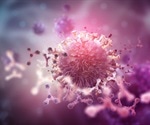
_3b74d320362946ddaafac993af0b2dc2-150x125.jpg)
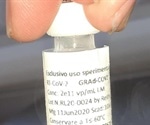

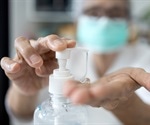
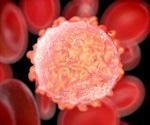
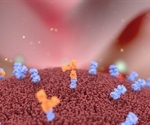
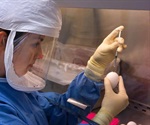
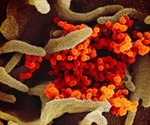
_fc764baf8c61406eaee9d11781e68f91-150x125.jpg)
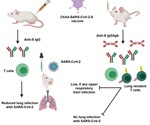

_80398f85f9034993a0e15d140bd88d4c-150x125.jpg)
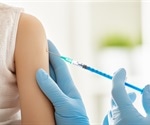
_075bbe2ebb5c4362bd27f47cfa1129d1-150x125.jpg)
_4ff641a1ea54468ba58623d20d5bc4c5-150x125.jpg)
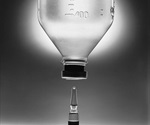
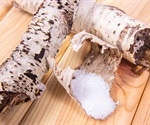
_d02d1cc7f7ac407f95c6b84085119228-150x125.jpg)
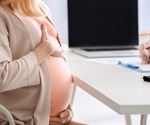
































No hay comentarios:
Publicar un comentario